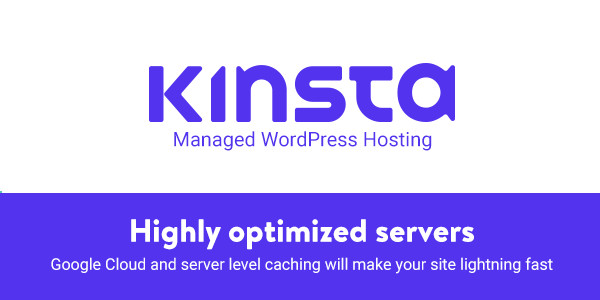Performance
A big advantage of WordPress Cloud Hosting is its impact on website performance with optimized servers to enhance your website’s speed.
Scalability
As your WordPress website grows and traffic increases, cloud hosting allows you to scale resource with just a few clicks.
Reliability
Cloud hosting’s distributed nature means that if one server fails, another server in the network can take over reducing the risk of downtime.

What is WordPress Cloud Hosting?
WordPress Cloud Hosting is a specialized type of web hosting designed specifically for WordPress websites, leveraging the power of cloud technology. Unlike traditional hosting, where your website resides on a single server, cloud hosting uses a network of interconnected servers (the “cloud”) to host your site.
WordPress powers over 40% of the web, making it the world’s most popular content management system (CMS). But as websites grow and traffic increases, traditional shared hosting may not be able to keep up with performance demands. That’s where WordPress Cloud Hosting comes in.
Why is WordPress Cloud Hosting a game-changer for your website, and how does cloud hosting compares to traditional hosting options? Most important, what is the best WordPress cloud hosting providers that can help you move smoothly to this next level for your site.
Why Choose WordPress Cloud Hosting?
Superior Performance and Speed
One of the biggest advantages of WordPress Cloud Hosting is its impact on website performance. Since your website’s data is stored across several servers, the load is distributed, allowing for faster response times and reduced latency. Additionally, many cloud hosting providers offer built-in caching, CDNs (Content Delivery Networks), and optimized servers to enhance your website’s speed.
Faster Load Times
Your site can load content from the nearest server to your visitor, reducing delays.
Improved SEO
Faster websites tend to rank better on search engines, improving your site’s visibility and traffic.
Increased Reliability
Cloud hosting’s distributed nature means that if one server fails, another server in the network can take over. This significantly reduces the risk of downtime compared to traditional hosting, which relies on a single server.
Redundancy
Multiple servers mean backups of your data, reducing the risk of data loss.
High Uptime
Many cloud hosting providers boast 99.9% uptime, ensuring your website stays online consistently.
Easy Management and Updates
Most WordPress cloud hosting providers offer user-friendly control panels and tools specifically designed for WordPress, making it easy to manage your website even if you’re not a tech expert. Features like one-click WordPress installation, automatic updates, and staging environments are common, helping you manage your site effortlessly.
One-Click Staging
Test updates or new designs without affecting your live site.
Automatic Updates
Keep WordPress core, themes, and plugins updated without manual intervention.
Scalability for Growing Websites
As your WordPress website grows and traffic increases, cloud hosting allows you to scale resources like CPU, RAM, and storage with just a few clicks. You don’t need to worry about upgrading to a bigger server manually or experiencing slowdowns during high traffic spikes. Cloud hosting adapts dynamically to your website’s needs.
Auto-scaling
Resources automatically scale during traffic spikes without crashing or slowing down.
Perfect for E-Commerce
Ideal for e-commerce sites, blogs, or businesses that experience fluctuating traffic levels.
Enhanced Security
WordPress Cloud Hosting providers often offer advanced security features, such as automatic backups, malware scanning, and free SSL certificates. With WordPress being a frequent target of cyberattacks, having these protections in place is crucial.
Automatic backups
Easily restore your site in case of a security breach or technical issue.
DDoS Protection
Cloud hosting providers typically have advanced firewalls and protection against Distributed Denial of Service (DDoS) attacks.
Global Content Delivery with CDN Integration
Many WordPress cloud hosting providers offer seamless integration with Content Delivery Networks (CDNs). A CDN stores copies of your website’s content on servers located around the world, ensuring that visitors access your site from the server closest to them geographically.
Faster Global Access
With a CDN, your website can load quickly for users no matter where they are in the world. Instead of relying on a single server, content is distributed across multiple locations, reducing latency and improving performance.
Reduced Bandwidth Costs
CDNs also reduce the amount of bandwidth consumed by your primary server, as cached content is served to users from the closest CDN node, rather than your origin server.
WordPress Cloud Hosting vs Traditional Hosting
How WordPress cloud hosting compares to traditional hosting options:
| Feature | Traditional Shared Hosting | WordPress Cloud Hosting |
| Performance | Moderate (shared resources) | Superior (dedicated, scalable resources) |
| Scalability | Limited | Highly scalable |
| Uptime | Depends on a single server | Redundant servers (99.9% uptime) |
| Security | Basic (may require additional plugins) | Advanced (built-in security features) |
| Cost | Lower, but increases with premium plans | Slightly higher, but cost-effective over time |
| Ease of Use | Simple, but can become restrictive | Beginner-friendly with powerful tools |
Top WordPress Cloud Hosting Providers
Kinsta
Kinsta is a premium managed WordPress cloud hosting provider that uses Google Cloud’s infrastructure. It’s known for its high performance, speed, and ease of use. Kinsta offers automatic scaling, built-in caching, and a global CDN.
- Pros: Exceptional performance, free daily backups, and a custom dashboard designed for WordPress users.
- Cons: Higher price point compared to some other providers.
Hostinger
Hostinger is known for its affordability, and its WordPress cloud hosting plans are no different. With fast performance, intuitive management, and a range of resources, Hostinger is a great choice for small to medium-sized websites.
- Pros: Affordable plans, fast load times, and beginner-friendly dashboard.
- Cons: Fewer advanced features compared to premium providers.
Cloudways
Cloudways is a managed cloud hosting provider that allows you to choose from multiple cloud platforms like AWS, Google Cloud, and DigitalOcean. It offers flexibility in choosing your infrastructure while managing the technical aspects for you.
- Pros: Flexible pricing, pay-as-you-go plans, and advanced caching solutions like Varnish and Redis.
- Cons: Slightly steeper learning curve for beginners.

SiteGround
SiteGround offers optimized cloud hosting solutions for WordPress with automatic scaling, daily backups, and enhanced security features. SiteGround is renowned for its customer support and has a user-friendly interface that caters to beginners.
- Pros: Excellent customer support, built-in security, and scalability.
- Cons: Limited storage compared to other cloud hosting providers.

Is WordPress Cloud Hosting Right for You?
WordPress Cloud Hosting is a powerful solution for websites of all sizes, offering superior performance, scalability, and reliability. Whether you run a small blog, an online store, or a large enterprise site, cloud hosting provides the flexibility and resources you need to keep your site fast, secure, and online—no matter what traffic or challenges come your way.
If you’re looking for speed, scalability, and enhanced security—all while keeping your WordPress site easy to manage—WordPress Cloud Hosting is the perfect solution. With many options available, you can choose a provider that fits your specific needs and budget.







